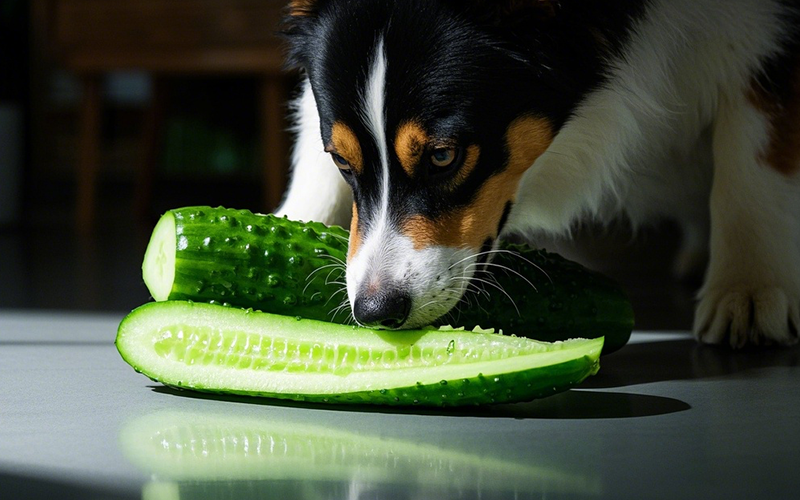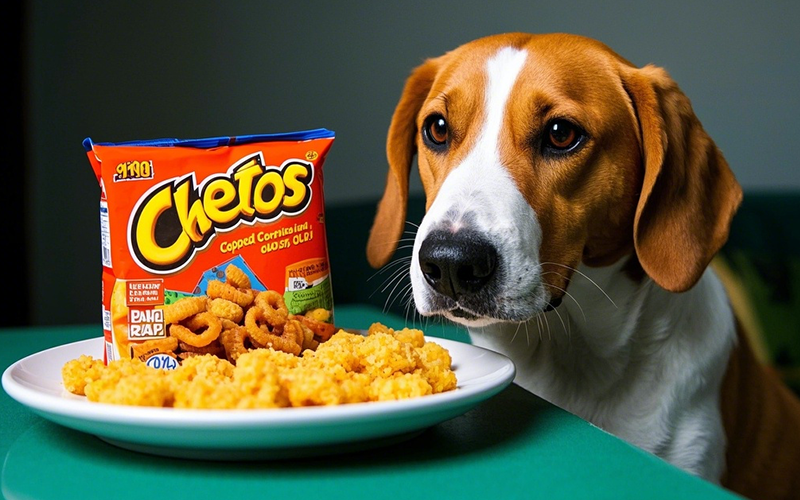Can Dogs Eat Bananas? A Guide to the Benefits, Risks, and Everything You Need to Know
- 14 Feb 2025 15:27
Bananas are one of the most popular fruits in the world, known for their delicious sweetness and creamy texture. As pet owners, we often wonder about sharing these healthy treats with our furry companions. After all, if a food is good for us, it might also be good for our pets, right? But when it comes to feeding our dogs, not all human foods are safe for them. So, the question arises: Can dogs eat bananas?
In this article, we'll explore the answer to this question and look at the potential benefits and risks of giving bananas to dogs. By understanding the nutritional value of bananas, we can make an informed decision about whether or not they should be part of your dog's diet.

The Nutritional Value of Bananas
Before we dive into whether dogs can safely eat bananas, it’s important to understand what makes bananas a popular choice among humans. Bananas are rich in vitamins, minerals, and fiber, offering a variety of health benefits. Here’s a breakdown of some key nutrients found in this fruit:
Potassium: Bananas are well-known for being an excellent source of potassium, a mineral that plays a crucial role in muscle function, maintaining proper fluid balance, and supporting the heart and kidney health.
Vitamins: Bananas contain several essential vitamins, including Vitamin C, Vitamin B6, and small amounts of Vitamin A, Vitamin B9 (folate), and Vitamin E. These vitamins contribute to a dog's overall health and immune system.
Fiber: Bananas are rich in fiber, which aids in digestion. This can be particularly beneficial for dogs that suffer from occasional digestive issues like constipation or diarrhea.
Natural Sugars: The natural sugars in bananas, such as fructose and glucose, provide a quick source of energy. While these sugars can be beneficial in moderation, it's important not to overfeed your dog, as excessive sugar intake can lead to obesity and other health problems.
Can Dogs Safely Eat Bananas?
In short, yes, dogs can eat bananas in moderation. The fruit is generally considered safe for dogs and can even be a healthy snack. Many pet owners choose bananas as a treat because they are low in fat and cholesterol, making them a healthier alternative to other high-calorie, fatty treats.
However, as with any new food, it’s important to introduce bananas to your dog’s diet gradually. Some dogs may have sensitive stomachs or food allergies, and sudden changes in their diet can cause digestive upset. Start by offering a small amount of banana and observe how your dog reacts.
Benefits of Feeding Bananas to Dogs
Bananas can provide several health benefits for dogs when fed in moderation. Here are some reasons why bananas might be a great addition to your dog's diet:
Supports Digestive Health: The high fiber content in bananas can help regulate your dog’s digestive system, promoting healthy bowel movements and preventing constipation. Bananas are also rich in prebiotics, which can support the growth of beneficial bacteria in the gut.
Boosts Energy: Bananas are a natural source of energy, thanks to their high carbohydrate content. They can be a good treat for active dogs, especially after a long walk or exercise session.
Promotes Healthy Heart: The potassium in bananas is essential for maintaining heart health. Potassium helps regulate your dog’s heartbeat and muscle function, which is particularly important for older dogs or those with heart conditions.
Provides Essential Nutrients: Bananas contain several vitamins and minerals that contribute to your dog's overall health. For example, Vitamin B6 is involved in brain development and function, while Vitamin C helps to boost the immune system.
Natural Treat Alternative: If you’re looking for a healthier alternative to processed dog treats, bananas are an excellent choice. They are low in fat, sugar, and calories, which makes them a good option for dogs on a weight management plan.
Potential Risks of Feeding Bananas to Dogs
While bananas are generally safe for dogs, there are some risks associated with feeding them to your pet. Here are a few important considerations:
High Sugar Content: Bananas do contain natural sugars, and while these are much healthier than processed sugars, it's still important to feed them in moderation. Too much sugar can lead to weight gain and other health issues, such as diabetes, particularly in dogs that are prone to obesity.
Choking Hazard: The banana peel can pose a choking hazard to dogs if ingested, especially if it's not properly chewed. Always remove the peel before giving your dog any banana, as it can be difficult for them to digest.
Overfeeding Can Lead to Digestive Issues: As with any treat, overfeeding bananas can lead to digestive upset. Too many bananas can cause your dog to experience bloating, diarrhea, or an upset stomach. Stick to small portions to avoid these issues.
Allergic Reactions: Although rare, some dogs may be allergic to bananas. Symptoms of an allergic reaction can include itching, swelling, or gastrointestinal upset. If you notice any unusual symptoms after your dog eats a banana, stop feeding it to them and consult with a health professional.
How to Serve Bananas to Dogs
If you decide to give your dog a banana, there are many ways to serve it. Here are a few ideas for incorporating bananas into your dog's diet:
Plain Sliced Banana: Simply peel the banana, slice it into bite-sized pieces, and offer it as a treat. This is the easiest and most straightforward way to serve bananas to your dog.
Frozen Banana Bites: If your dog enjoys cold treats, you can freeze banana slices for a cool and refreshing snack during the warmer months.
Banana and Peanut Butter: Dogs love peanut butter, and it pairs perfectly with bananas. Spread a small amount of peanut butter on top of banana slices for a tasty treat your dog will love. Just make sure the peanut butter is free of xylitol, which is toxic to dogs.
Banana Smoothie: If your dog is a fan of blended treats, you can blend bananas with other dog-friendly ingredients like plain yogurt or pumpkin for a refreshing smoothie. Just ensure all ingredients are safe for dogs.
Conclusion
In conclusion, bananas can be a healthy and tasty treat for dogs when offered in moderation. They provide important nutrients like potassium, fiber, and vitamins, which can help support your dog’s overall health. However, it’s essential to be mindful of the potential risks, such as the high sugar content and the possibility of digestive issues or allergic reactions.
If you're looking for an additional way to monitor and improve your pet’s health, consider using PettureX, a pet AI software that offers 24-hour online consultation and pet image recognition. PettureX can help you keep track of your pet’s well-being and offer valuable insights into potential health concerns. Whether it’s about diet, behavior, or health issues, PettureX is a reliable and friendly health software assistant for all your pet-related needs.
By making informed choices and monitoring your dog’s diet closely, you can ensure they stay healthy and happy.
Related

Can Dogs Eat Cake? Here’s What You Need to Know
- 1 Oct 2025
Can Dogs Eat Guacamole? Here’s What You Need to Know
- 2 Apr 2025
Can Dogs Eat Fish Sticks? Here’s What You Need to Know
- 2 Apr 2025
Can Dogs Eat Garlic Butter Ritz Crackers? Here’s What You Need to Know
- 2 Apr 2025
Can Dogs Eat Feta Cheese? Here’s What You Need to Know
- 2 Apr 2025
Can Dogs Eat Coconut Milk? Here’s What You Need to Know
- 2 Apr 2025
Can Dogs Eat Cucumber Skin? Here’s What You Need to Know
- 2 Apr 2025
Can Dogs Eat Chestnuts? Here’s What You Need to Know
- 2 Apr 2025
Can Dogs Eat Cinnamon Rolls? Here’s What You Need to Know
- 2 Apr 2025
Can Dogs Eat Cheetos? Here’s What You Need to Know
- 2 Apr 2025
